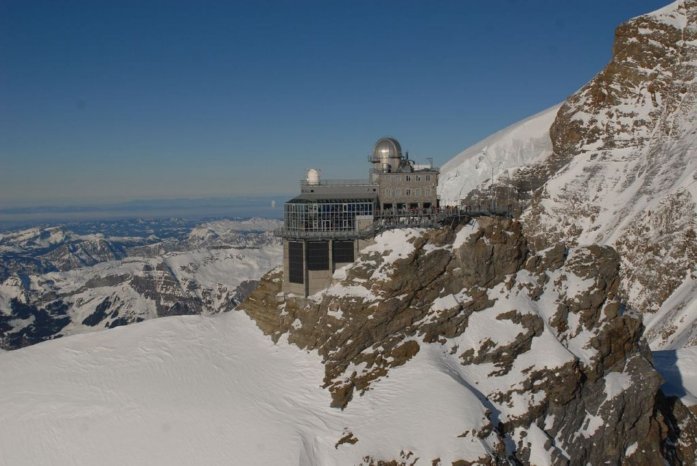Situated in the Swiss Alps, the Jungfraujoch rises almost 3,500 metres above sea level. The mountain is home to the highest solar electricity plant in the world, the first development stage of which has been in operation since January 2008. Designed by the Swiss BKW subsidiary sol-E Suisse AG, the plant is equipped with 58 KC200GHT-2 solar modules from Kyocera. The primary function of the plant is to conduct experiments to determine the energy yield of a plant in high alpine terrain. During a three-week test run, the plan achieved a specific energy yield some 70 per cent above results of comparable plants from the Mittelland region.
The high energy yield can be attributed to a number of factors. Firstly, radiation is considerably more intense at this altitude than in lower locations.Reflection by snow surfaces additionally raises the radiation intensity. Furthermore, the low temperatures that prevail in these conditions lead to enhanced efficiency of the silicon solar cells.
Nevertheless, conditions are still not ideal: storms with wind speeds reaching more than 200 km/h, severe thunderstorms and high mechanical stress due to great temperature differences, such as when the solar cells cool down at sunset, place additional strain on the plant. A temperature difference of up to 70°C between day and night presents a tough challenge for the material.
"Operating a solar plant in the high mountains is an endurance test for all the components. We are therefore especially proud that BKW has also chosen Kyocera solar modules on this occasion too, just as they did previously for the Stade de Suisse Wankdorf, Berne," says Mitsuru Imanaka, the European head of Kyocera. "Our solar modules can stand up to the extreme weather conditions and function perfectly. This project represents another pioneering achievement for us on the way to environment-friendly energy production."


